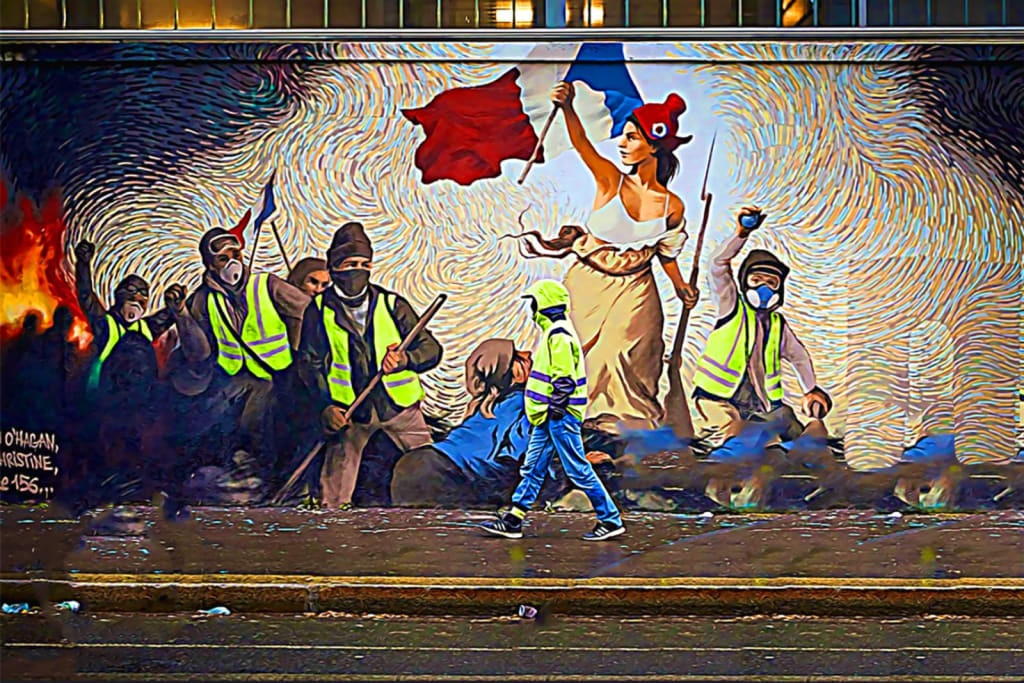Liberty, Equality, and the Quest for Human Rights: A Historical Perspective on France
From the Enlightenment to Modern Challenges, Tracing the Evolution of Human Rights in France

France has a rich and complex history when it comes to human rights. From the Enlightenment era to the present day, the country has experienced significant shifts and challenges in its approach to human rights, shaping its societal, legal, and political landscape. Let's explore the historical perspectives of human rights in France, from its early developments to modern-day challenges.
Enlightenment Era: The Birth of Human Rights
The Enlightenment era of the 18th century, with its emphasis on reason, liberty, and equality, laid the groundwork for the modern concept of human rights in France. Influential philosophers such as Voltaire, Montesquieu, and Rousseau advocated for the protection of individual rights, including freedom of speech, religion, and conscience. Their ideas shaped the French Revolution, which sparked a transformative period in French history.
French Revolution: Declaration of the Rights of Man and of the Citizen
The French Revolution, which began in 1789, led to the adoption of the Declaration of the Rights of Man and of the Citizen in 1789. This landmark document proclaimed the inherent rights and freedoms of individuals, including the right to liberty, property, security, and resistance to oppression. It established the principle of equality before the law, stating that all citizens have equal in rights and duties, regardless of their birth or social status.
Napoleonic Era: Mixed Legacy for Human Rights
The Napoleonic era that followed the French Revolution saw a mixed legacy for human rights. While Napoleon Bonaparte introduced some progressive reforms, such as the Napoleonic Code that codified legal equality and abolished feudalism, he consolidated power and limited individual freedoms. His authoritarian rule suppressed political dissent and curtailed civil liberties, leading to a regression in the protection of human rights in France.
19th and 20th Centuries: Struggles for Labor Rights and Universal Suffrage
The 19th and 20th centuries witnessed significant struggles for labor rights and universal suffrage in France. Workers' movements emerged, demanding fair wages, safe working conditions, and the right to form labor unions. Women's suffrage movements also gained traction, advocating for the right to vote and equal participation in the political process. These movements resulted in important legal reforms, such as the introduction of universal suffrage for men in 1848 and women in 1944, as well as the establishment of labor laws that protected workers' rights.
Modern Era: Challenges and Progress in Human Rights
In the modern era, France continues to face challenges and make progress in the realm of human rights. Issues such as discrimination, racism, and religious freedoms have been areas of contention. France has implemented measures to combat discrimination and promote equality, including anti-discrimination laws, affirmative action policies, and efforts to promote diversity and inclusion. However, controversies over issues like the wearing of religious symbols, the treatment of immigrants, and the balance between national security and civil liberties have sparked debates and debates on human rights in recent years.
Conclusion
In this article, I delve into the rich historical perspectives of human rights in France, exploring its origins in the Enlightenment era and the Declaration of the Rights of Man and of the Citizen during the French Revolution. I examine the Napoleonic era's mixed legacy, with progressive reforms and authoritarian rule. I also highlight the struggles for labor rights and universal suffrage in the 19th and 20th centuries, leading to legal reforms for workers' and women's rights. Furthermore, I discuss the modern era's challenges, including issues of discrimination, racism, and religious freedoms, and the efforts to combat them through anti-discrimination laws and diversity promotion. As France continues to navigate these complexities, we reflect on its historical legacy and the ongoing quest for human rights and equality in the country.
About the Creator
Enjoyed the story? Support the Creator.
Subscribe for free to receive all their stories in your feed. You could also pledge your support or give them a one-off tip, letting them know you appreciate their work.






Comments
There are no comments for this story
Be the first to respond and start the conversation.